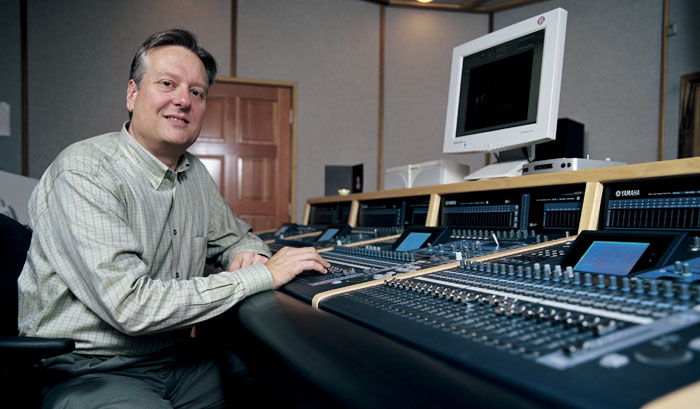


Hot off his success scoring The Matrix: Reloaded, not to mention the Wachowski Brothers' two previous films, The Matrix and Bound, film composer Don Davis is definitely in demand. Before the phone rang with the next urgent "Get me Don Davis!" call, he filled us in on what it's like to be a top composer in this competitive business.
Is a classical music education still essential in contemporary film scoring?
I'd have to say that a classical music education is absolutely essential for a film composer. I don't know how I could function without the background that I've had. It seems very unlikely that someone could simply intuit their way through the literature without some sort of guidance, whether in a university or through private study. But it's also important to follow popular music styles and trends, which can only be done outside of the classroom. Some things can be taught, and others can only be intuited. Although most universities are now offering film music programs, the insight that connects musical ideas with the enhancement of visual art is something innate, and needs to come from within.
If someone wants you to make an orchestra sound like an electronica album, that person is clearly delusional.
Tell us about some of the ways you mix conventional orchestral scoring with pop and techno approaches.
Discussions with the director of a film usually determine the stylistic approach. That in turn determines whether an orchestral medium is needed, or if an instrumentation based on electronics should be employed. But, if someone wants you to make an orchestra sound like an electronica album, that person is clearly delusional. There are moments that require the depth and organic texture of an orchestra, and other moments that need the raw energy of techno. The two elements need to be treated in a manner that works to their mutual best advantage. In The Matrix: Reloaded, I was asked to integrate the orchestral elements more closely with rhythm elements than had been done before. I collaborated with Ben Watkins, the leader of a band called Juno Reactor, in some instances, I gave him the orchestral elements that I had written, and he processed them as though they were part of the electronics. In that way, we were able to integrate the process more closely than we'd done previously.

Which was the most challenging Reloaded cue?
The "Burly Brawl"-the climactic fight scene where Neo fights a multitude of Smiths. My original orchestral idea for the scene was very complicated, with individual instruments playing separate parts in close imitation. I wanted to musically represent the replication we were seeing onscreen. Needless to say, it was a very involved cue to write, orchestrate, and record. Once it was recorded, Ben took the orchestral tracks and transformed them-along with some extremely involved synthesizer and percussion tracks-into an elaborate electronica extravaganza. Finally, I was asked to support his synthesizer elements with still more orchestral and choir tracks. It was challenging, because the constant evolution of that scene was really quite difficult, but I think the results are very rewarding.
Your studio setup includes several Yamaha 02Rs.
Yes. Four cascaded 02R96 boards occupy a central position in my studio. The retrievable automated mixes and scene memories are invaluable in managing several different projects at the same time, and accommodating last-minute changes called in from the dubbing stage. We can transition from a recording environment to a mixing environment almost instantaneously-and recording and mixing at 96kHz provides an exponential leap in sound quality. Also, the analog-to-digital converters are significantly better than those of the previous 02R, and the equalization is sweeter and more transparent. The bussing structure is streamlined, and allows for a considerable economy of studio time management. Each function is now accessible via an onboard interface, so I don't have to hunt around through the system architecture. The automation features, which are an absolute necessity in the film scoring environment, are now all-encompassing, and the Mac interface fully exploits the flexibility that the added processing power offers. But of all the improvements that were made to the 02R board, I think the onboard effects are the most useful.
Any advice to share with aspiring film composers?
This is a rewarding line of work, but also a demanding one. Some people assume it can be done within the confines of a forty-hour week. But in reality, a film composer can choose his own hours, as long as he chooses them all!
























